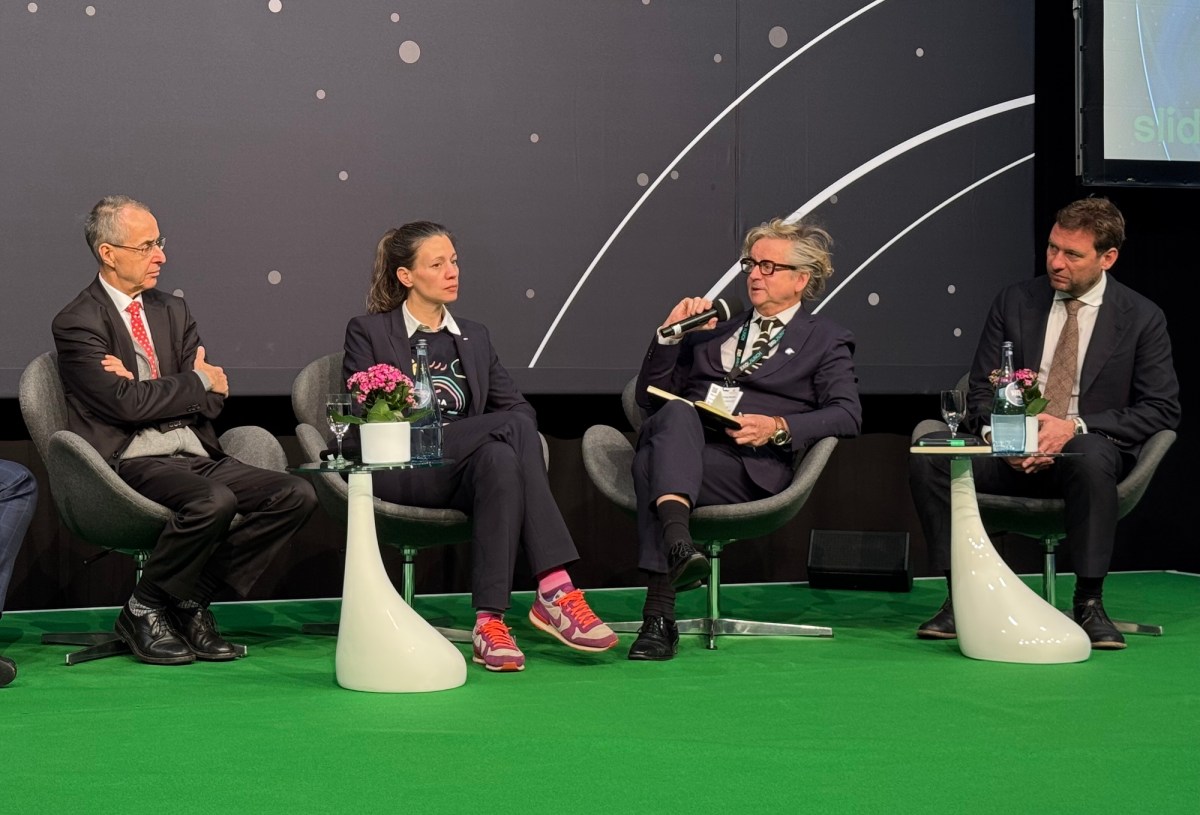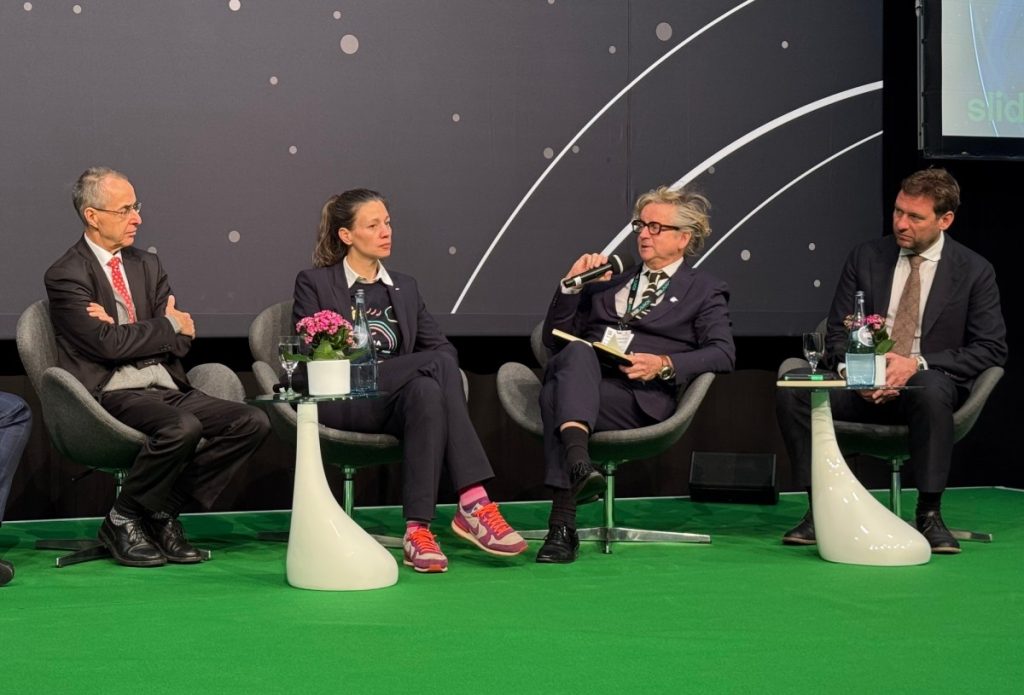BREMEN, Germany — The election of Donald Trump as president is causing shockwaves in Europe’s space community, with some calling for increased spending on space capabilities to reduce reliance on the United States.
During sessions at the Space Tech Expo Europe conference here and in side meetings, officials expressed concerned that an “America first” approach promoted by Trump during his election campaign could weaken cooperation with Europe on civil and military space during his administration.
“It is foreseeable that our longstanding and good partner, the U.S.A., will change its space priorities in the future,” said Kristina Vogt, senator for the economy, ports and transformation for the German state of Bremen, in a keynote at the conference Nov. 19.
While she said it is not clear how specifically those priorities will change, “if the U.S.A. takes a similar course in the space sector as it has already announced in other industrial sectors, this will mean less transatlantic cooperation at a time of global challenges.”
That cooperation has, in the eyes of some in Europe, become a dependence on the United States. Some cited the need for the European Space Agency and European Commission to use SpaceX for launches of science and navigation satellites given delays with the Ariane 6 and problems with the Vega C rockets.
“It’s not really a reassuring thought being dependent on someone like Elon Musk,” said Andreas Bovenschulte, president of the senate and mayor of Bremen, during a side event at the conference. “If we should need one more motivation for developing European autonomy, we have now, after the election, every reason to do so.”
He predicted that the election will be a “game changer” for space policy in Germany and Europe. “The goal of space autonomy will gain more traction in the next weeks and months, and I think that’s a good development.”
Others agreed that there will be a push to build up European space capabilities. “I think it is extremely important in a situation, where there is an increasing dependency on an actor that may be less cooperative, to create an internal market with our own demand,” said Hermann Ludwig Moeller, director of the European Space Policy Institute (ESPI), during a conference panel Nov. 19. “When we build rockets — and we should — we should also build what is in those rockets and a narrative why you need those things.”
“I think you should never waste a good crisis,” quipped Phil Chambers, chief executive of launch vehicle startup Orbex, on that panel. He said Musk’s role advising Trump after the election means “U.S. launch companies are going to have an even more of a competitive advantage in the market, which gives us even more of a reason to create sovereign European capabilities.”
That could, he suggested, help fuel a rapprochement between the United Kingdom and the European Union on space programs after Britain exited the EU. “I think this will now give us the impetus to go faster and go further and, hopefully, for Britain and the EU to come together more quickly.”
Greater spending on space could be tied to likely increases on European defense spending. “The incoming Trump presidency will be an uncomfortable time for Europe but also an opportunity for Europe to finally develop these capabilities that we dearly need,” said Sven Meyer-Brunswick, principal at venture capital fund Alpine Space Ventures, during another conference session Nov. 20. “Hopefully, that’s exactly the kick in the ass that Europe needs to finally get going.”
Pierre Godart, chief financial officer of ArianeGroup and chief executive of its German subsidiary, ArianeGroup GmbH, was more optimistic that U.S.-European cooperation in space will remain strong in the Trump administration. “We cooperate very well with our friends in the United States on different programs,” he said Nov. 19, such as production of the European Service Module for NASA’s Orion spacecraft.
“How will the relationship be between Europe and the U.S.? To be honest, nobody knows as of today,” he said. “I wish that it goes on and that we carry on to have very good cooperation.”
German worries
The concerns about changes in U.S.-European space cooperation are particularly acute in Germany given political challenges there. The governing “traffic light” coalition in the federal government collapsed earlier this month, setting the stage for an election as soon as February, months earlier than previously scheduled.
German officials at the conference worried about both the implications of a new government as well as plans to cut government spending on space by as much as 12%. Any cuts in German space spending, including contributions to ESA, would be particularly embarrassing for the country and its space industry, they noted, as the next ESA ministerial meeting will take place in Bremen in November 2025.
“This will not only be very damaging to the space industry but also to Europe’s space program as a whole and for European cooperation in this sector,” Bovenschulte said. With Bremen hosting facilities for companies like Airbus, ArianeGroup and OHB, he said he was working with other German states that also have significant space industry presence “to ensure that Germany remains a reliable part of European space.”
Some argue that Germany should be spending more, not less, on space. ESPI’s Moeller noted that while Germany is Europe’s biggest economy, France spends twice as much on space in terms of the proportion of its GDP. “If there is one place in Europe that should step up,” he said, “I think this is on the German side.”
He said there is a case for a significant increase on space spending in Germany for both economic and security reasons, topics he said will likely be key ones in the upcoming federal election. “I think there is a big point to be made on the economic value and the security and defense value of space in these elections.”
“I’m hoping for a shift and expecting it a little bit” on space in the German government, said Sabine von der Recke, a member of the board of OHB, during a Nov. 19 conference panel. “The next German government will really face challenges shaping Europe’s space policy and Europe’s space ambitions.”
The next government, she said, will likely increase defense spending, which she argued opened a door for spending more on space, citing the dual-use nature of many space assets. “We should spend a little bit more on space because whatever we do in space, we can use it as well for our military, security and safety.”




